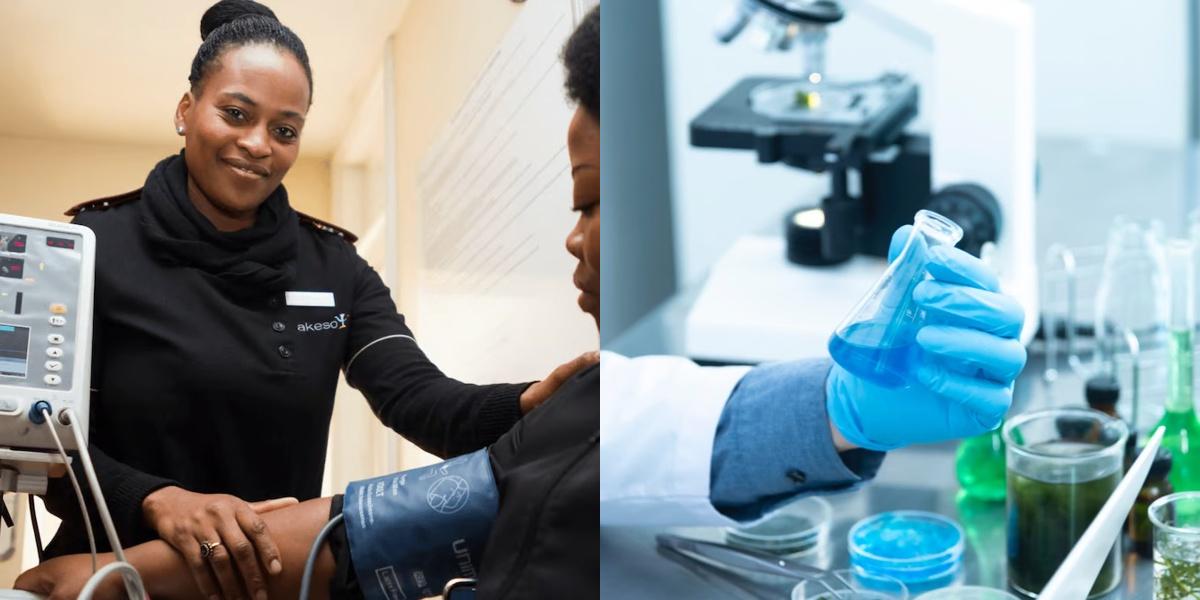Patient Care Technician vs Sterile Processing Technician

Key Points:
- Patient Care Technicians assist nurses; Sterile Processing Technicians clean and sterilize medical equipment.
- Patient Care Technicians typically earn a higher salary than Sterile Processing Technicians.
- Both roles have good job availability, but Patient Care Technicians may have more opportunities.
- Both roles require in-person training, but Sterile Processing Technicians may have more hands-on components.
- Patient Care Technician training is generally shorter and less expensive than Sterile Processing Technician training.
The healthcare industry offers a wide range of career opportunities, and choosing the right path can be overwhelming. Patient care technicians and sterile processing technicians are both vital members of the healthcare team, but they have distinct roles and responsibilities. Understanding the differences between these two professions can help you make an informed decision about which path is right for you.
Patient Care Technician vs Sterile Processing Technician: Career Outlook and Salary
The career outlook and salary potential for patient care technicians and sterile processing technicians vary:
Patient Care Technician Career Outlook and Salary:
- According to the Bureau of Labor Statistics (BLS), employment of nursing assistants and orderlies, which includes patient care technicians, is projected to grow 8 percent from 2019 to 2029, much faster than the average for all occupations.
- The median annual wage for nursing assistants was $30,830 in May 2020, according to the BLS.
Sterile Processing Technician Career Outlook and Salary:
- The BLS does not provide specific data for sterile processing technicians, but employment in the healthcare support occupations, which includes this role, is projected to grow 19 percent from 2019 to 2029, much faster than the average for all occupations.
- The median annual wage for healthcare support occupations was $29,470 in May 2020, according to the BLS.
Final Thoughts
Both patient care technicians and sterile processing technicians play important roles in the healthcare industry. Patient care technicians provide direct care to patients, assisting with their daily needs and performing basic medical procedures, while sterile processing technicians focus on ensuring the cleanliness and sterility of medical instruments and equipment.
When choosing between these two career paths, consider your interests, strengths, and goals. If you enjoy hands-on patient care and direct interaction with patients, a career as a patient care technician may be a good fit for you. If you have an eye for detail, enjoy working behind the scenes, and have an interest in infection control, a career as a sterile processing technician may be the right choice.
Ultimately, both professions offer rewarding opportunities to make a positive impact on patient care and contribute to the overall functioning of the healthcare system.
Dreambound offers programs in multiple locations. For in-depth information on the intricacies of these two vocations, their prerequisites, and steps to join, explore the following blogs:

Marce Arnejo is part of the Sales team at Dreambound. Her role involves seeking out schools and institutions to provide valuable opportunities for students seeking a career in the healthcare sector. Beyond her professional life, Marce is passionate about music and gaming. She finds joy in exploring various genres of music and using gaming to unwind and immerse herself in virtual worlds. Her diverse interests enrich her personal life and contribute to her work by bringing new ideas and creativity.




